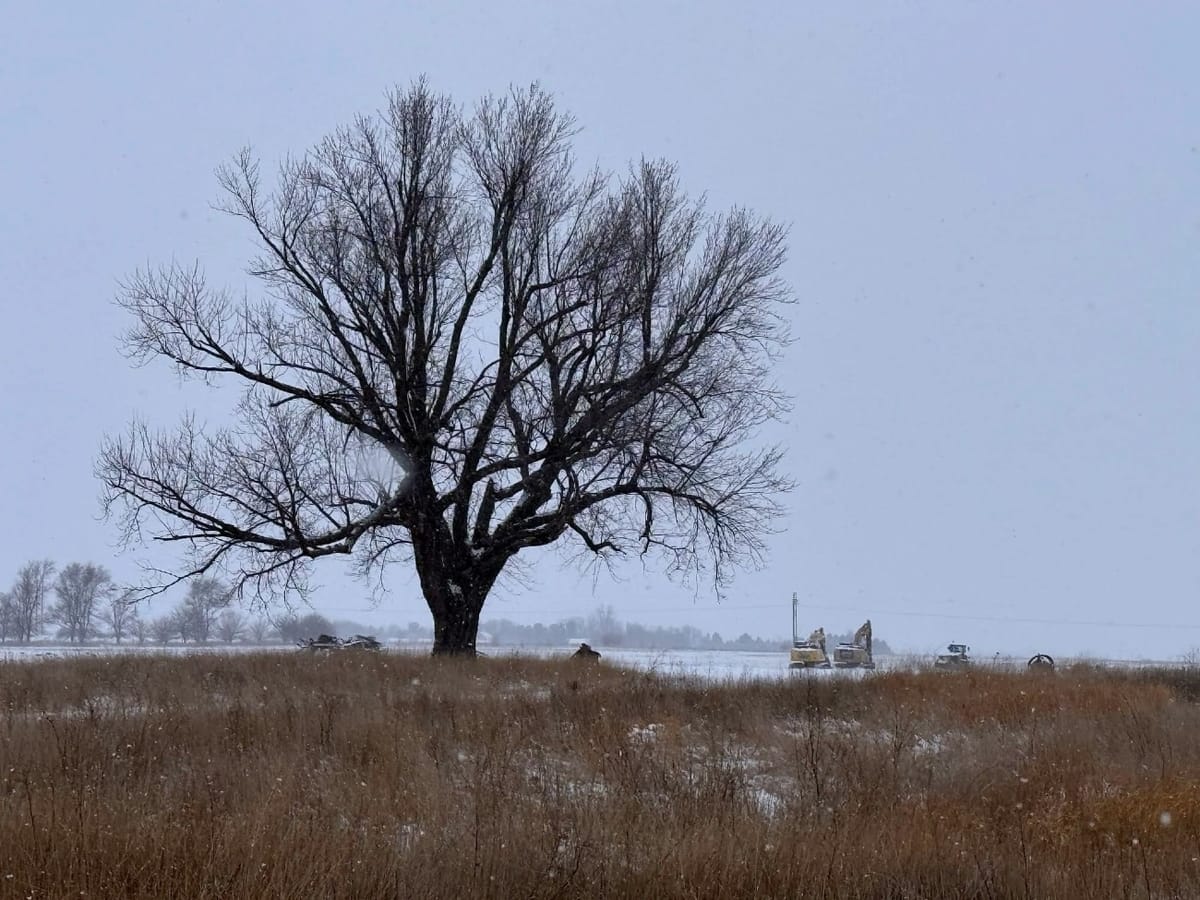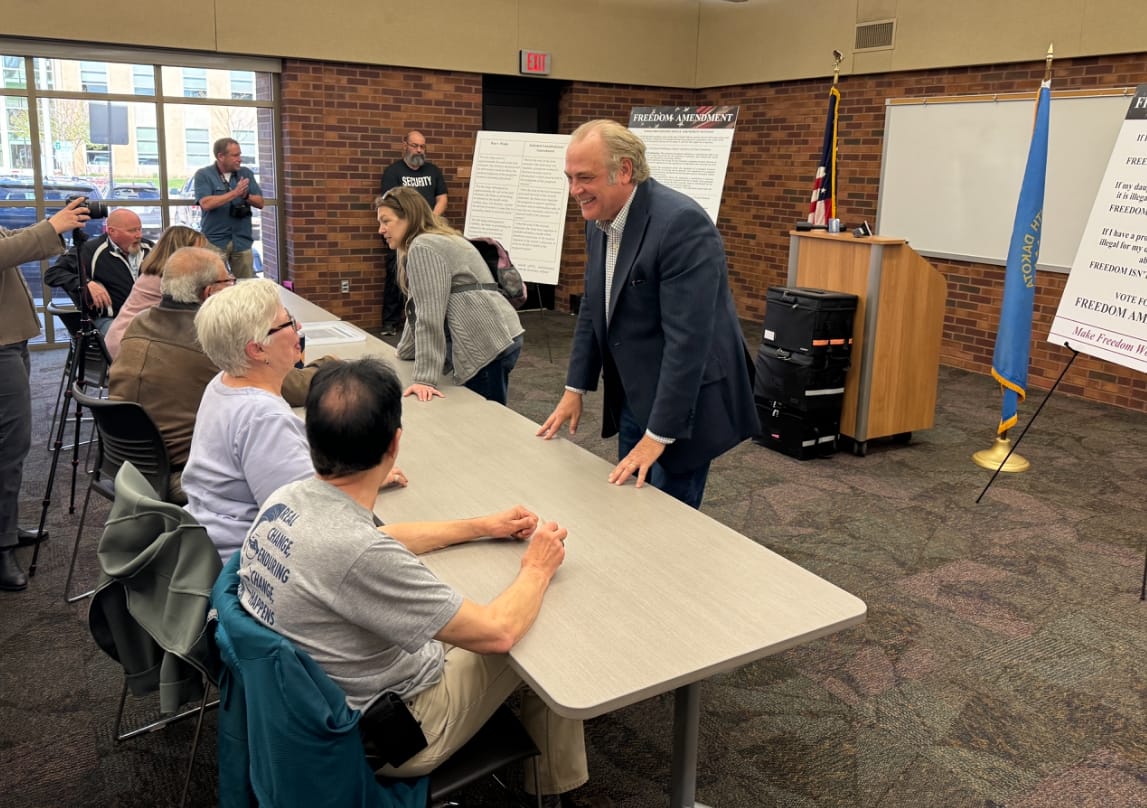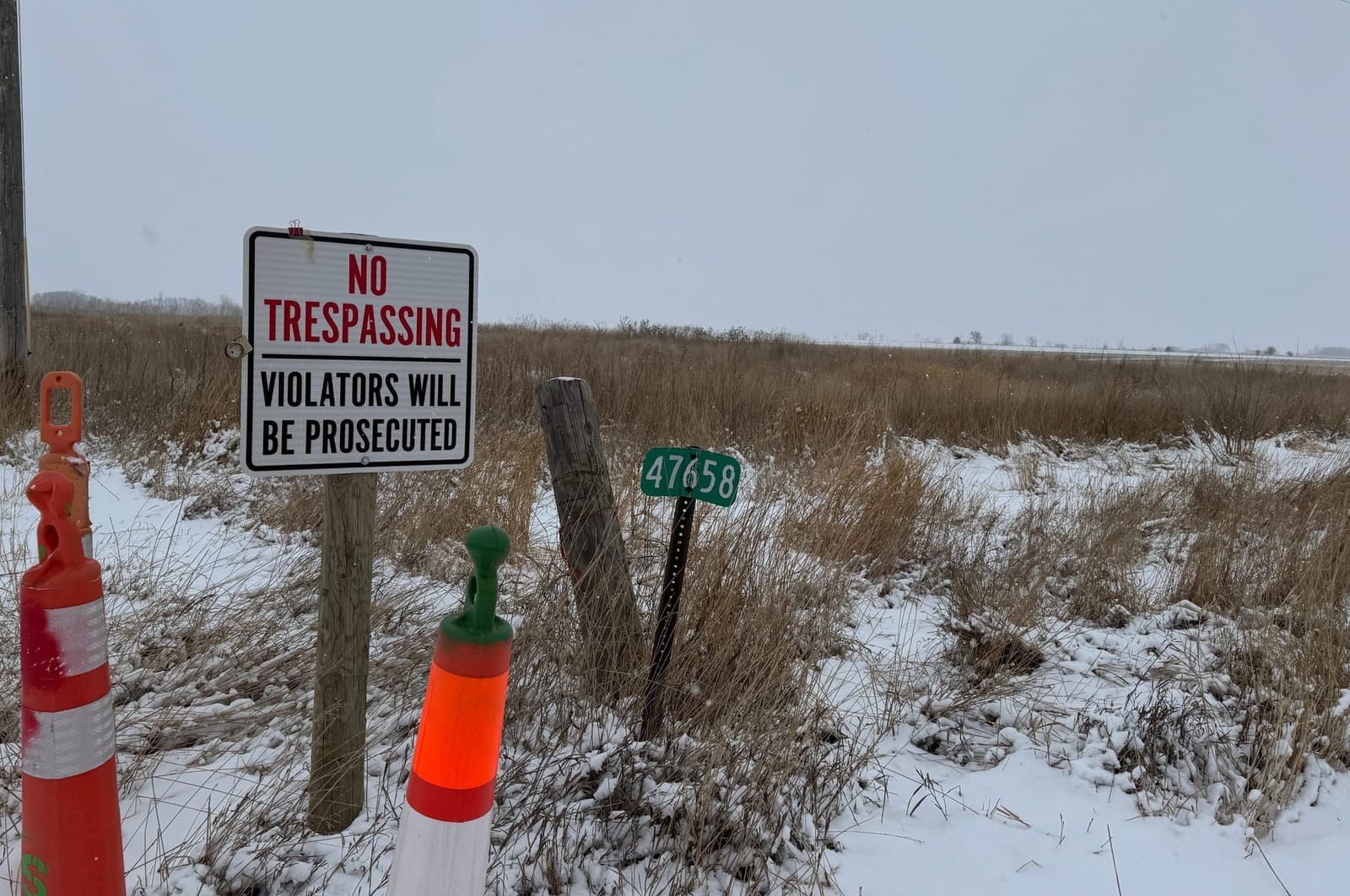More than half of South Dakotans oppose building a new men’s state prison in rural Lincoln County, according to a poll co-sponsored by South Dakota News Watch, another blow to a project that failed to secure final funding during the 2025 legislative session.
The statewide survey, also sponsored by the Chiesman Center for Democracy at the University of South Dakota, showed that 52% of voters are against using the Lincoln County site, while 34% are for it and 14% are not sure.
The South Dakota Department of Corrections began site preparation earlier this year on state-owned farmland between Canton and Harrisburg for the estimated $825 million project. But resistance from state legislators and nearby property owners led Gov. Larry Rhoden to declare a “reset” on the issue in late February.
Rhoden formed a task force chaired by Lt. Gov. Tony Venhuizen to study the issue and explore new site possibilities leading up to a special legislative session on July 22.
“The Lincoln County site is not the only option – all options are on the table for the prison task force,” Venhuizen told News Watch in reaction to the poll results.
“Building a prison is like going to the dentist. No one is excited about it, but it’s the responsible thing to do. I’m pretty sure that releasing inmates early because there’s nowhere to keep them would be even less popular.”

Opposition to the originally proposed site was strongest in the Sioux Falls Metro area, which includes Lincoln County, with 57% of respondents against it, followed by West River (52%), East River/North (51%) and East River/South (44%).
Mixed results for legislators in 2025
Backlash over the prison plan was part of a broader grassroots movement to safeguard property rights that started as resistance to a planned carbon capture pipeline in South Dakota and other states.
That populist movement within the South Dakota Republican Party led to hard-right candidates being elected to the state Legislature and thrust into leadership roles, where they spearheaded legislation prohibiting the use of eminent domain for carbon pipelines.
“The property rights issue created a lot of change,” said GOP county official Jeff Hunt, who owns a ranch south of Dupree on the Cheyenne River Indian Reservation. “My daughter (Jana Hunt) is a legislator and that’s why she ran, and that’s why she won.”

The poll showed that South Dakotans are divided on whether the 2025 Legislature was successful in tackling issues that impact the lives of state residents.
Asked whether they agreed that lawmakers “addressed the needs and concerns of state residents” during the session, 45% said they disagreed with that statement, while 43% agreed.
But while 22% said they strongly disagreed with the statement, only 9% said they strongly agreed.
Dan Ahlers, executive director of the South Dakota Democratic Party, cited the poll results as proof of a "disconnect" between South Dakota residents and the state GOP, which holds 96 of the 105 seats in the Legislature.
"While the percentages are fairly close, the number of people that strongly disagree is quite high," Ahlers told News Watch. "Take into account that most South Dakotans are either registered Republican or lean conservative, and these results should be even more alarming."
Mason-Dixon Polling and Strategy conducted the poll April 9-11 using random selections from a telephone-matched state voter registration list that included both landline and cellphone numbers.
Residents support changing vote threshold
The poll showed that South Dakotans support a 2026 ballot measure initiated by legislators that would raise the percentage of statewide voters needed to pass constitutional amendments to 60%.
Of those polled, 47% support the measure, which would match Florida and Illinois for the highest voting threshold among the 18 states that allow for constitutional amendments through the ballot initiative process.
The measure was opposed by 40% of respondents, with 13% undecided.

State Rep. John Hughes of Sioux Falls, the amendment’s Republican sponsor, said it is meant to highlight the difference between initiated measures, which impact state statutes, and initiated amendments, which change the state constitution.
“I think all of us would agree that a constitution is different than a statute," Hughes said. "It's intended to be much more permanent.”
Rick Weiland, whose Dakotans for Health organization has been a frequent sponsor of ballot measures, pointed out that South Dakota passed 11 laws from 2018 to 2024 to make direct democracy more difficult, the most of any state.
“They’re attempting to orchestrate the death of direct democracy by a thousand cuts,” Weiland told News Watch.
Poll: No major change with populist rise
In a separate survey that polled 500 registered Republicans, voters were asked about the populist movement within the state Republican Party and how that trend has changed their perception of how the party represents residents.
Nearly two-thirds (65%) of respondents said there has been no change in their view of the party, while 25% said the shift has made the party more representative of Republican voters. Only 6% said that the party has become less representative.
Julia Hellwege, an associate political science professor at USD and director of the Chiesman Center, said the numbers reveal differences between the political perception of legislators and the general public, at least among Republicans.
"I think the (populist) legislators who were voted in would say, 'Look, we've made such a difference. We are making the party wider and more representative,'" Hellwege said. "And the establishment politicians are saying, 'Oh my gosh, look at this crazy change that is making the party weaker because of all the infighting and not being on the same page.' And meanwhile the poll shows that the public is like, 'No, everything is fine. We don't really see a difference.'"

Correction: On May 2 at 10:30 a.m., this story was updated to reflect proper poll results for a 2026 ballot measure initiated by legislators that would raise the percentage of statewide voters needed to pass constitutional amendments to 60%. The correct poll results were that 47% support the measure and 40% are opposed.
This story was produced by South Dakota News Watch, an independent, nonprofit organization. Read more stories and donate at sdnewswatch.org and sign up for an email every few days to get stories as soon as they're published. Contact Stu Whitney at stu.whitney@sdnewswatch.org.








